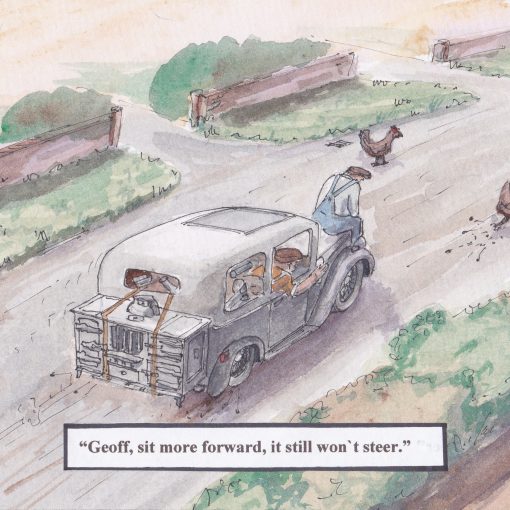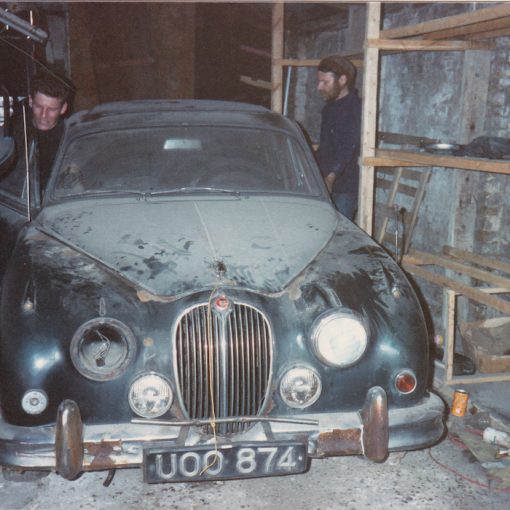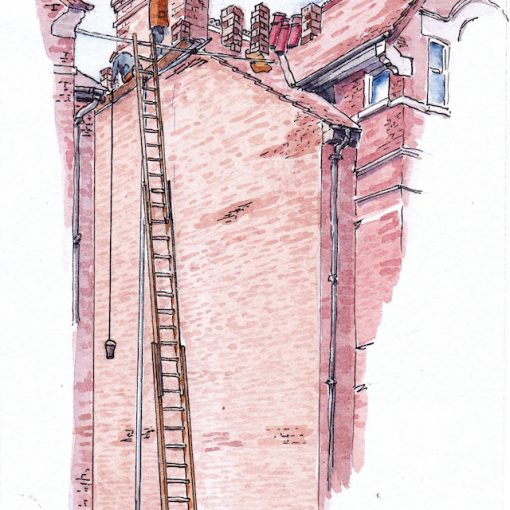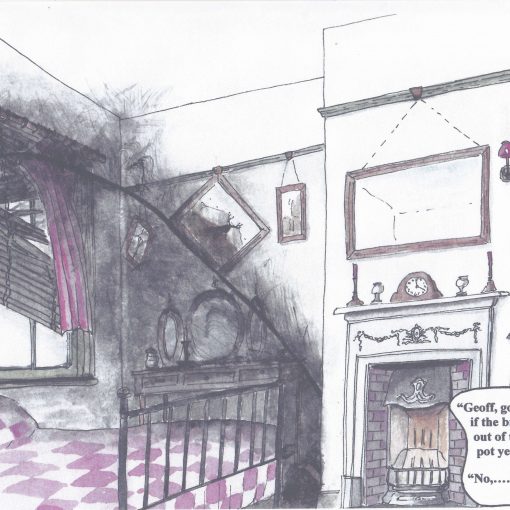In 1962 W.J. Cooper & Son, a local building and decorating firm run by my father Fred and his uncles Geoff, Fred and Bill, was given a building contract by Mr Lewis, an architect and the owner of an old cottage on the corner of West Street and North Road in Prittlewell. It was at the end of a terrace of six brick-built alms cottages called “St Marys Cottages”.
The work consisted of alterations, additions and renovations to the existing building. Part of the contract was to build an extension to the West side of the property which was very close to the four foot high boundary wall and adjacent public footpath.
As soon as we started setting out and digging out the footings for the extension, the general public, consisting mainly of inquisitive ladies and the odd elderly gentleman passing by, would ask what were we building.
One of the main workmen on this job was the firm’s bricklayer Len Thacker. On the spur of the moment, and being a bit of a wag, he told them that it was going to be a top secret nuclear shelter.
Bearing in mind that the Cuban missile crisis was in full flow, with the Russians having just prepared to install nuclear weapons on the island of Cuba and a stand-off between US President Kennedy and the Russian premier, Nikita Khrushchev, the threat of nuclear war was very real, and a great worry and concern for all people in every nation.
News soon got around the area that Coopers were building a top secret nuclear shelter and the number of locals leaning on the wall to watch the footings being dug began to increase.
The next question to be asked was who would be allowed into the shelter when it was finished? Len’s solution to that was to pick up a clipboard with a sheet of paper and pen and then, very quietly and secretively, behind a shielded hand, tell onlookers that if they wanted to put their name and address down on the list they would be the first to be considered … “when the time comes”.
Of course it wasn’t too long before the locals realised it was only an extension being built, not a nuclear shelter, and that all had been said in jest, but not before Len had three sheets of paper filled with names and addresses.
Colin Cooper





